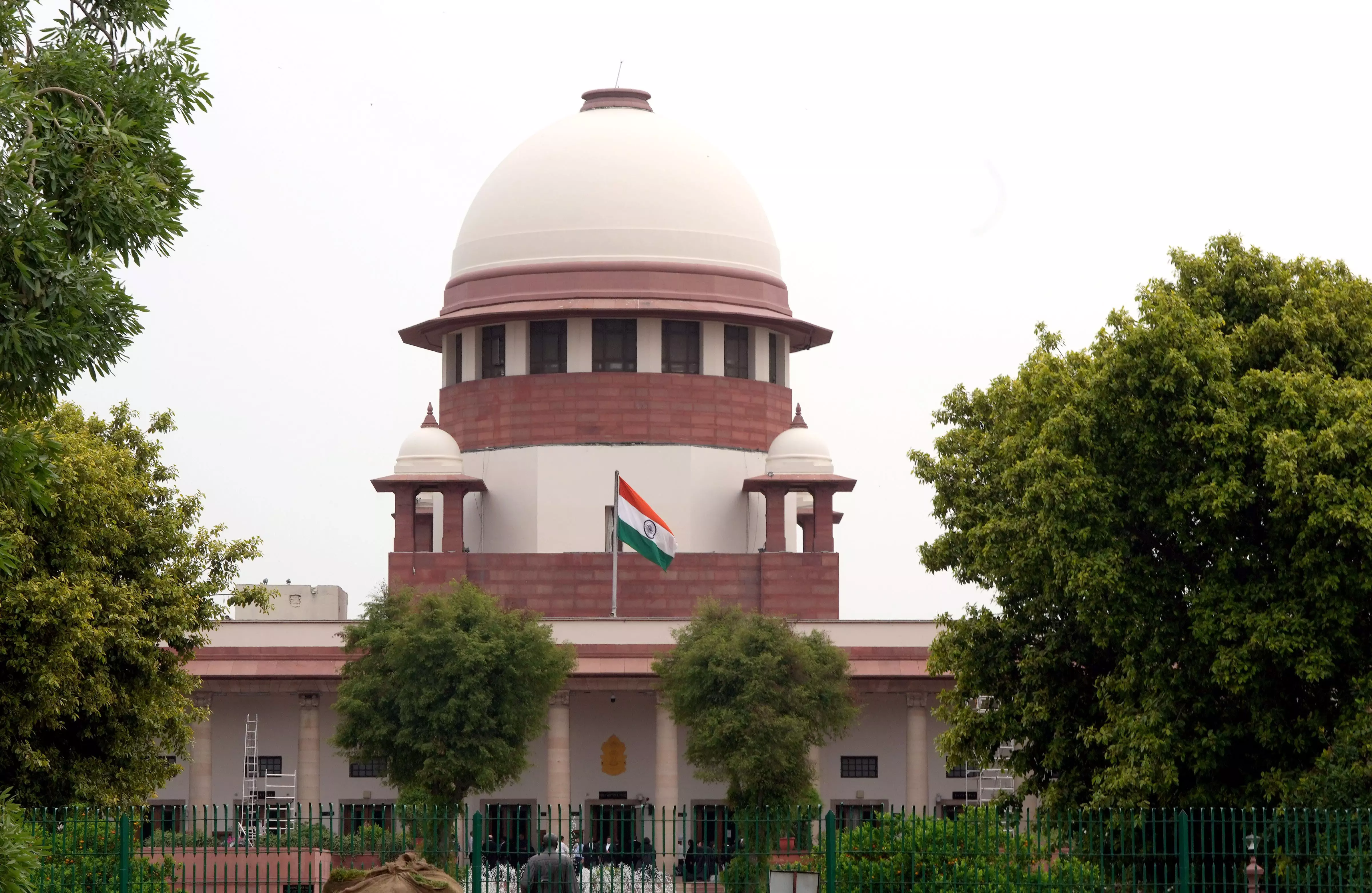SC asks TN to list steps for appointment of trustee committee for temples

Supreme Court (PTI)
New Delhi: The Supreme Court on Wednesday directed the Tamil Nadu government to spell out its proposed actions over the appointment of the "Arangavalar Committee" (trustee committee) for all Hindu temples in the state. "File an affidavit as to what you (state government) propose to do," a bench comprising Justices M M Sundresh and Aravind Kumar asked the Tamil Nadu government counsel.
The direction came after the state government informed the apex court that it had sought applications for appointment of trustee committees from 31,000 temples and such panels were appointed in over 7,500 temples only as many were yet to respond.
The bench granted four weeks' time to the state government to file the affidavit and listed the plea of petitioner "Hindu Dharma Parishad" in February, 2025.
The counsel for the state government said a very few people came up for appointment in the temples' trust despite the government issuing advertisements in this regard.
The counsel for the petitioner body claimed there were around 40,000 temples in the state and several old ones were getting damaged due to non-maintenance.
He said at least 10 per cent of the offerings made by the devotees should be spent on the upkeep of temples.
The bench was hearing an appeal by the petitioner against the Madras High Court judgement of December 9, 2021, when Justice Pushpa Sathyanarayana dismissed the plea for the appointment of the Arangavalar Committee for all Hindu temples in the state.
The plea in the high court sought the inclusion of a retired judge, a social activist, a devotee, a person from scheduled caste, apart from a woman in such committees to manage temple affairs.
It was argued that several temples in the state were not being maintained properly and had suffered damages over time.
To address this issue, the plea proposed the formation of the trustee committee a diverse composition, submitting a representation to the state government on November 10, 2021.
The state government opposed the petition and argued the Tamil Nadu Hindu Religious and Charitable Endowments Act, 1959, already provided for the appointment of trustees to temple management boards.
According to Section 47(1)(c) of the Act, the Board of Trustees must include a minimum of three and a maximum of five members, with mandatory representation for scheduled castes or scheduled tribes and women.
The high court had ruled there was no need for further adjudication, as the petitioner's demands were already addressed by the statutory provisions of the Tamil Nadu HR&CE Act.
The direction came after the state government informed the apex court that it had sought applications for appointment of trustee committees from 31,000 temples and such panels were appointed in over 7,500 temples only as many were yet to respond.
The bench granted four weeks' time to the state government to file the affidavit and listed the plea of petitioner "Hindu Dharma Parishad" in February, 2025.
The counsel for the state government said a very few people came up for appointment in the temples' trust despite the government issuing advertisements in this regard.
The counsel for the petitioner body claimed there were around 40,000 temples in the state and several old ones were getting damaged due to non-maintenance.
He said at least 10 per cent of the offerings made by the devotees should be spent on the upkeep of temples.
The bench was hearing an appeal by the petitioner against the Madras High Court judgement of December 9, 2021, when Justice Pushpa Sathyanarayana dismissed the plea for the appointment of the Arangavalar Committee for all Hindu temples in the state.
The plea in the high court sought the inclusion of a retired judge, a social activist, a devotee, a person from scheduled caste, apart from a woman in such committees to manage temple affairs.
It was argued that several temples in the state were not being maintained properly and had suffered damages over time.
To address this issue, the plea proposed the formation of the trustee committee a diverse composition, submitting a representation to the state government on November 10, 2021.
The state government opposed the petition and argued the Tamil Nadu Hindu Religious and Charitable Endowments Act, 1959, already provided for the appointment of trustees to temple management boards.
According to Section 47(1)(c) of the Act, the Board of Trustees must include a minimum of three and a maximum of five members, with mandatory representation for scheduled castes or scheduled tribes and women.
The high court had ruled there was no need for further adjudication, as the petitioner's demands were already addressed by the statutory provisions of the Tamil Nadu HR&CE Act.
( Source : PTI )
Next Story

